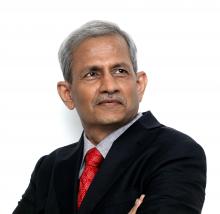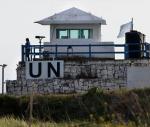You are here
Water, wars and an uncertain future
Dec 02,2015 - Last updated at Dec 02,2015
In December 2009, I met Walid Mouallem, foreign minister of Syria, in his office in Damascus, along with an eminent British politician. He rolled out before us his vision of a peace process with Israel in phases.
He had two essential conditions. First, secured access to the waters of Tiberias should be guaranteed. Second, Turkey should underwrite the peace process.
He said that the government in Damascus could trust only one state as the guarantor of its interests. It was Turkey under Recep Tayyip Erdogan’s leadership.
In its Blue Peace report, published in February 2011, Strategic Foresight Group proposed several solutions to use water as an instrument of peace and prosperity in the Middle East. One of them was adapted from Mouallem’s framework.
A month after the release of the report, Syria was engulfed in civil strife. The primary reason was the erosion of the social contract between the state and its citizens. But one of the key contributing factors was drought and the failure to pursue regional water cooperation, which had sent many farmers into destitution and migration to overstretched cities.
Syria’s most trusted ally turned into its most strident enemy. A regional war followed that now threatens to turn into a global confrontation.
In some other parts of the world, leaders have recognised the unstated relationship between water, peace and security.
The relations between India and Bangladesh dramatically improved when a treaty for managing the Teesta River was drafted in a grand bargain over the security paradigm.
In 2013, the Strategic Foresight Group brought together leaders of the ruling and opposition parties in India and Bangladesh to prepare a framework that would lead to the signing of the Teesta River treaty and introduce a mechanism to avert water conflict for the next thousand years.
In the former Yugoslavia, no sooner was the Dayton Agreement signed than the newly born states entered into an agreement for collaborative management of the Sava River.
It contributed to achieving peace and cooperation in the Balkans, which had seen only death and violence until then.
As the subtle equation between water, war and peace was being revealed in different parts of the world, unnoticed by the global public opinion, the Strategic Foresight Group took two steps.
First, we developed a Water Cooperation Quotient for 219 shared river basins from 148 countries.
It proved that any two countries engaged in active water cooperation do not go to war for any other reason.
Second, we collaborated with the government of Switzerland to create a Global High Level Panel on Water and Peace in November 2015. Co-convened by the governments of 15 countries from all continents, the panel is chaired by Danilo Turk, former president of Slovenia.
HRH Prince Hassan is a distinguished member of the body.
The panel will respond to appeals made by UN Secretary General Ban Ki-moon to examine the linkages between water, peace and security.
It will propose a global architecture to use water as an instrument of peace through financial incentives, establishment of hydro-diplomacy mechanisms, encouragement to form joint water management bodies in all basins, promotion of best practices and, most significantly, engagement of senior political leaders in the water discourse.
The panel will hold consultations in different parts of the world and present its report to the United Nations system by December 2017.
If the panel succeeds in preparing an operational architecture, it will have an impact on the life of 2.3 billion people living in shared river basins of the developing world, with a combined annual economic product of $10 trillion.
Over the years, as cooperative water management spreads, the incremental capital output ratio will go down and the military expenditure will also decline. This will create a peace dividend of $200 billion per year.
If the panel fails to propose a convincing global architecture, chaos will take place.
At present, water resources are depleting at the rate of over 320 billion cubic metres in Asia, Africa and the Middle East. This is equal to 10 Euphrates Rivers disappearing from the face of the Earth every year.
If this trend continues, there will be steep decline in food production and a fresh demand for about 200-300 million tonnes of food grains in the international market.
This will raise food prices to unprecedented heights. Food riots will follow not only in Nepal and Nigeria, but also in Peru and Paraguay.
No country in the world will escape the calamity of high food prices, forced migration, terrorism, dictatorships and perhaps a world war starting in 2039.
Didier Burkhalter, Swiss foreign minister, cautioned at the launch of the Global High Level Panel: “Water is not just about development. It is also about security.”
Syria understood this in December 2009. But failure to act with urgency has driven the entire Middle East to the precipice.
It is about time that the world wakes up before Syria’s story is repeated in every region.
The writer is president of the Strategic Foresight Group, an international think tank that has worked with or on 50 countries from four continents. He contributed this article to The Jordan Times.













